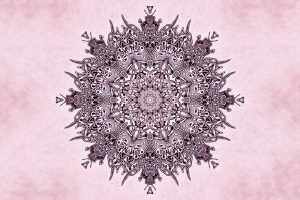Getting Off Opioids and Other Drugs With Nature’s Remedies

With the opioids claiming so many lives in America, more and more treatments are being developed to help addicts become clean and sober. Drug and alcohol abuse is becoming way too common in our country, but our planet’s natural resources are able to help those struggling with addiction become clean. Plant-based treatments are becoming more widely recognized and eco-friendly, and plant-based addiction treatments are helping to save lives.
Mind Expansion and Relief
One of the many reasons that people use alcohol or drugs is as a means of self-medicating. They are treating a trauma or an undiagnosed mental illness by altering their mind state with legal and illegal chemicals. Some Americans have begun to look toward other cultures and religious practices for relief from what plagues their brain. The following are plant-based relief methods found in other lands and countries:
Ayahuasca
This tea leaf is native to the rainforest of Brazil and is commonly used by the area’s inhabitants. It has been traditionally used in healing ceremonies led by a local medicine man. The effects of drinking an ayahuasca tea brew are psychedelic and have been said to be transformative for those with PTSD and issues with depression.
Through the tea-induced psychosis, the patient processes past trauma with the help of the medicine man as a guide. Not all experiences are reported to be a healing one when using ayahuasca and varies from person to person. Research has been conducted on the use of ayahuasca medicinally in the United States and has been found to be positive. If an addict can work through the trauma that leads them to use, it is possible that they would no longer feel compelled to self-medicate.
Ibogaine
Ibogaine is an African spiritual medicine that is derived from plants in the Apocynaceae family. It is extracted from the bark and used in small doses. Ibogaine is classified as a Schedule 1 drug, also referred to as a psychedelic, and is illegal in America’s effort to fight a war on drugs. In the 1960s, ibogaine was found to reduce the withdrawal symptoms of heroin. It was reported to make users feel alert and energized.
Physiologically, ibogaine works to repair the chemical imbalances caused by drug use within a few hours — something the body can naturally do over the course of days or weeks. Thus, it can reduce the amount of pain and anguish typically associated with recovering from heavy opioid use. Ibogaine is still illegal in the United States and should only be used under the supervision of a medical professional.
Peyote
Peyote is similar to ayahuasca in that it is a psychedelic in its effect and traditionally used to take the user on a spiritual journey. It is illegal in the United States but still used in Native American religious practices and ceremonies — tribal members being exempt from the national law. The active ingredient in the stunted cactus is mescaline, and it’s sold on the black market in pill form. It has been used to treat alcoholism in the past, and according to the Harvard Medical School, it has similar positive effects on depression as LSD and psilocybin. It is believed that the self-actualization and time of introspection play a vital role in the sobriety-inducing effects after use.
Detoxification
The choice to go into recovery from addiction is the very first step of a longer journey. Drug and alcohol use have adverse effects on our bodies. It takes time for our body to naturally detoxify our organs of toxins completely. Rehabilitation centers tend to be advocates of the use of medications during the detoxification process. If those medications are prescribed and go unused, they are thrown away as waste and may find their way into our water systems, possibly showing up in our drinking water.
If the use of the drug of choice was used intensely, such as meth or heroin, it may be medically necessary to use medications prescribed by your doctor. You can, however, utilize supplements after the initial detoxification process has begun to further support the process.
The following are plant-based supplements that can aid in the detoxification of the body during recovery after drug or alcohol abuse:
- Ginger: Used to treat nausea and can be ingested as a tea or eaten in candied form
- Dandelion: Aids in supporting the liver through detoxification and can be found in tea form or as an herbal supplement
- Milk Thistle: Another liver support found in tea or supplement form
- Turmeric: An anti-inflammatory that will soothe your intestines and joints. Can be eaten raw, used as a cooking spice, drank as tea or used as supplement.
- Peppermint: Diluted with a carrier oil, can be used to reduce nausea by applying directly to the skin of your belly.
No detoxification should be done without the care of a medical professional, and it is best practice to disclose all medical conditions with your healthcare provider. There is a misconception that a plant-based treatment can not be overdosed on. This is untrue. Follow the recommended doses prescribed by your physician to avoid any issues.

